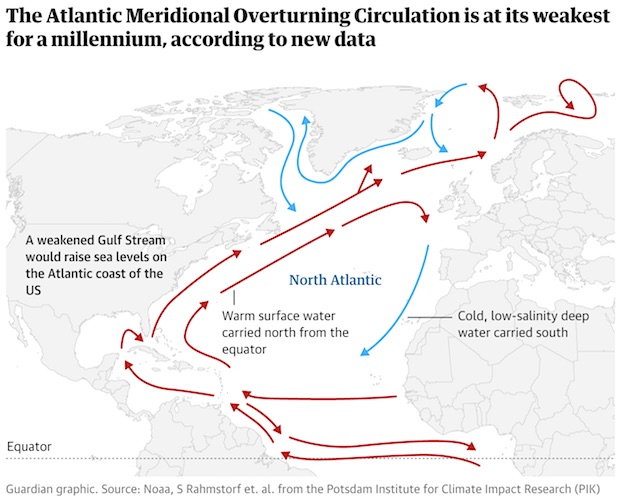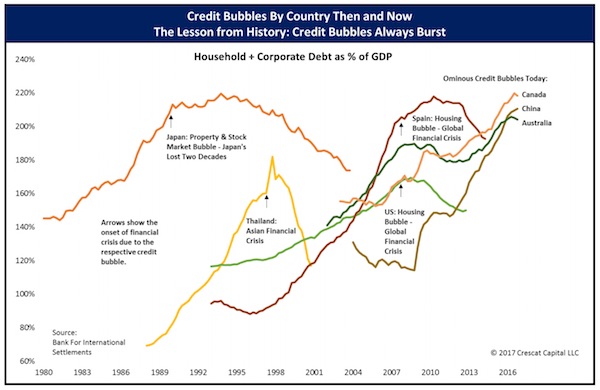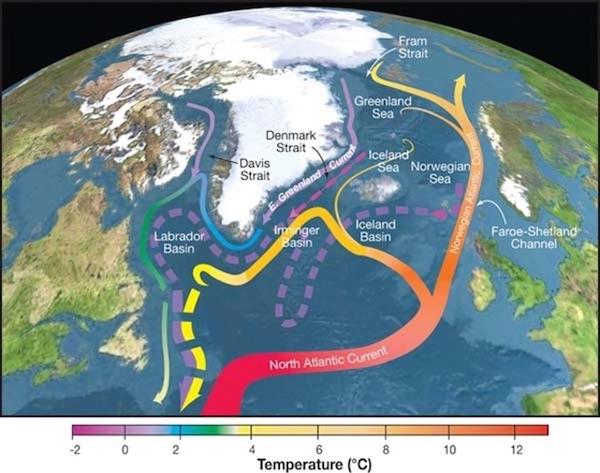
Jean-Francois Millet The flight into Egypt 1864





We need more testing! Only 100s of millions of people have taken it! Who knows if it’s safe?
• Ivermectin Could Cut Covid Deaths By Up To 75% (DM)
A cheap and safe drug widely used against parasites cuts Covid infections, hospitalisations and deaths by about 75 per cent, a study shows. More than 30 trials across the world found that ivermectin causes ‘repeated, consistent, large magnitude improvements in clinical outcomes’ at all stages of the disease. The peer-reviewed study, to be published in the US journal Frontiers of Pharmacology, says the evidence is so strong that the drug – used to treat head lice and scabies – should become a standard therapy everywhere, so hastening the global recovery.
Study co-author Professor Paul Marik, director of emergency and pulmonary care at the Eastern Virginia Medical School in the US, said: ‘The data is overwhelming – we are in a pandemic, and this is an incredibly effective way to combat it. If we use ivermectin widely, our societies can open up.’ Other medications have been touted as effective treatments for combating coronavirus, only for trials to dash hopes – notably with hydroxychloroquine, the anti-malarial drug. An earlier study by Professor Andrew Hill of Liverpool University also concluded that ivermectin cuts death rates by around three-quarters. He recommended there should be larger trials before it was approved by UK regulators. A new trial of ivermectin as a Covid treatment is due to start shortly at Oxford University.
Dr Tess Lawrie, director of the Evidence-Based Medicine Consultancy in Bath, convened an online summit of international experts last weekend to discuss the new data. It included evidence that widespread use of ivermectin in parts of India and South America has led to a big reduction in infections and deaths. Yesterday Dr Lawrie submitted a 97-page report to the World Health Organisation, urging it immediately to recommend ivermectin to treat Covid. The drug, taken in tablet form or as drops, is licensed in Britain only as a treatment for parasitic worms, head lice and scabies. It has been used by hundreds of millions of patients over the past 30 years, mainly in developing countries, and at around £50 per patient – less in some countries – is far cheaper than other new Covid treatments, such as the rheumatism drug tocilizumab, which costs £1,000 per patient.

”If the contagiousness of people without symptoms is not what drives the spread of SARS-COV-2, then no COVID restriction on public life besides staying home when you are clearly sick could be justified..”
• CDC Reports Shocking Data About Asymptomatic Spread (Fed.)
The U.S. Centers for Disease Control slipped in a shocking piece of evidence in a recent report on low in-school COVID-19 transmission that severely undercuts the rationale for most COVID restrictions, including lockdowns. The Jan. 29 report’s conclusion seems to fit the pro-mask narrative, of course: “Schools might be able to safely open with appropriate mitigation efforts [such as masking and not allowing student cohorts to mix] in place.” In the 17 rural Wisconsin schools surveyed, only seven cases were linked to in-school transmission out of 4,876 pupils, and no staff members were infected at school during the study period.
While the report spends ample time explaining the mitigation strategies employed in the schools and the high reported mask compliance (92%) among students, the authors later discuss something you probably have not seen in any of the mainstream media’s coverage of this report . “Children might be more likely to be asymptomatic carriers of COVID-19 than are adults…This apparent lack of transmission [in schools] is consistent with recent research (5), which found an asymptomatic attack rate of only 0.7% within households and a lower rate of transmission from children than from adults. However, this study was unable to rule out asymptomatic transmission within the school setting because surveillance testing was not conducted”
The “recent research” the study authors cite is a meta-analysis of 54 household COVID-19 transmission studies that observed 77,758 participants, which was posted as a pre-print this summer and published in December. The text of the analysis is even more consequential than the CDC’s reference makes it seem: “Estimated mean household secondary attack rate from symptomatic index cases (18.0%; 95% CI, 14.2%-22.1%) was significantly higher than from asymptomatic or presymptomatic index cases (0.7%; 95% CI, 0%-4.9%; P<.001), although there were few studies in the latter group. These findings are consistent with other household studies, reporting asymptomatic index cases as having limited role in household transmission”.
The 0.7 percent figure includes not just people who never show symptoms of COVID-19, but people who haven’t yet shown symptoms—two groups that have been alleged to be major factors driving the spread of the virus. This is a major data point often underplayed or even challenged in much media coverage of the virus. The key, if not central, rationale for non-pharmaceutical interventions such as masking, distancing, and staying at home is allegedly significant transmission from people who don’t show symptoms. If the contagiousness of people without symptoms is not what drives the spread of SARS-COV-2, then no COVID restriction on public life besides staying home when you are clearly sick could be justified, considering the obvious negative consequences of these restrictions.

Anti-inflammatory.
• Report Says Spirulina Algae Could Reduce Covid Mortality Rate (JPost)
A team of scientists from Israel and Iceland have published research showing that an extract of spirulina algae has the potential to reduce the chances of COVID-19 patients developing a serious case of the disease. The research, published in the peer-reviewed journal Marine Biotechnology, found that an extract of photosynthetically manipulated Spirulina is 70% effective in inhibiting the release of the cytokine TNF-a, a small signaling protein used by the immune system. The research was conducted in a MIGAL laboratory in northern Israel with algae grown and cultivated by the Israeli company VAXA, which is located in Iceland. VAXA received funding from the European Union to explore and develop natural treatments for coronavirus. Iceland’s MATIS Research Institute also participated in the study.
In a small percentage of patients, infection with the coronavirus causes the immune system to release an excessive number of TNF-a cytokines, resulting in what is known as a cytokine storm. The storm causes acute respiratory distress syndrome and damage to other organs, the leading cause of death in COVID-19 patients. “If you control or are able to mitigate the excessive release of TNF-a, you can eventually reduce mortality,” said Asaf Tzachor, a researcher from the IDC Herzliya School of Sustainability and the lead author of the study. During cultivation, growth conditions were adjusted to control the algae’s metabolomic profile and bioactive molecules. The result is what Tzachor refers to as “enhanced” algae.

Anyone surprised?
• Latin American Govts ‘Held To Ransom’ By Pfizer During Vaccine Talks (RT)
A number of Latin American countries have reportedly experienced extremely aggressive negotiating tactics by US pharmaceutical giant Pfizer, which has demanded full immunity from any civil claims and state assets as a guarantee. The questionable negotiating tactics by the pharmaceutical giant have been highlighted in a fresh report by the UK-based Bureau of Investigative Journalism (BIJ). Officials from Argentina, as well as from another unspecified Latin American country, talked to the outlet, describing Pfizer’s approach to negotiations as “high-level bullying” that made the governments feel like they were being “held to ransom.” Argentina was among the first countries to begin negotiations with the company.
The talks started last June, yet ultimately flopped as Pfizer’s demands became less and less reasonable, an official told the BIJ. The pharmaceutical giant assertively demanded additional clauses that would make it immune against any civil claims citizens might file over side effects from receiving the Pfizer jab. While a new bill regulating the vaccination process was adopted in October, the company was still unhappy with its wording, as it did not grant full immunity to pharmaceutical companies but rather allowed a change of jurisdiction established in advance in the contract. Pfizer ultimately requested a “new law” from the government, then-Health Minister Gonzalez Garcia said in December, describing the demands as “somewhat unacceptable.”
“Argentina could compensate for the vaccine’s adverse effects, but not if Pfizer makes a mistake,” the official, cited by BIJ, said. “For example, what would happen if Pfizer unintentionally interrupted the vaccine’s cold … and a citizen wants to sue them? It would not be fair for Argentina to pay for a Pfizer error.” The company then urged Argentina to take out international insurance to pay for potential future cases against the manufacturer, and ultimately demanded that it put up unspecified sovereign assets as collateral in December. “We offered to pay for millions of doses in advance, we accepted this international insurance, but the last request was unusual: Pfizer demanded that the sovereign assets of Argentina also be part of the legal support,” the official said.

Who are in reality Iraqi troops fighting ISIS?
• US Bombs Facilities In Syria Used By Iran-Backed Militia (AP)
The United States launched airstrikes in Syria on Thursday, targeting facilities used by Iranian-backed militia groups. The Pentagon said the strikes were in retaliation for a rocket attack in Iraq earlier this month that killed one civilian contractor and wounded a U.S. service member and other coalition troops. The airstrike was the first known military action undertaken by the Biden administration, which in its first weeks has emphasized its intent to put more focus on the challenges posed by China, even as Mideast threats persist. “This proportionate military response was conducted together with diplomatic measures , including consultation with coalition partners,” the Pentagon’s chief spokesman, John Kirby, said in announcing the strikes.
“The operation sends an unambiguous message: President Biden will act to protect American and coalition personnel. At the same time, we have acted in a deliberate manner that aims to deescalate the overall situation in eastern Syria and Iraq.” Biden administration officials condemned the Feb. 15 rocket attack near the city of Irbil in Iraq’s semi-autonomous Kurdish-run region, but as recently as this week officials indicated they had not determined for certain who carried it out. Officials have noted that in the past, Iranian-backed Shiite militia groups have been responsible for numerous rocket attacks that targeted U.S. personnel or facilities in Iraq. Kirby, the Pentagon spokesman, had said Tuesday that Iraq is in charge of investigating the Feb. 15 attack.
“Right now, we’re not able to give you a certain attribution as to who was behind these attacks, what groups, and I’m not going to get into the tactical details of every bit of weaponry used here,” Kirby said. “Let’s let the investigations complete and conclude, and then when we have more to say, we will.”

Syria, Iran, Russia.
• Russia Is ‘Existential Threat’ To West That NATO Must Neutralize (RT)
The Cold War ended decades ago, but Moscow is still working to maintain its Soviet-era influence over Eastern Europe, one of Washington’s top generals has claimed, warning that the US must take on Russia to deliver world peace. In a speech published by the Pentagon’s press service on Wednesday, the head of the country’s European Command, Air Force General Tod D. Wolters, claimed that, when it comes to projecting American force abroad, “everything we do is about generating peace.” However, he caveated, “we compete to win … and if deterrence fails, we’re prepared to respond to aggression, primarily through NATO.”
Wolters is also the US-led bloc’s supreme allied commander on the continent, and recent weeks have seen its members stage drills and engage in a series of stand-offs with Russian sailors in the Black Sea. “Beyond exercises,” he added, “we conduct operations and other activities to compete, deter and prepare to respond to aggression,” including maintaining a presence in the disputed region. The general insisted that the West is locked in a struggle for dominance with Moscow, and it has to come out on top. “We’re in an era of global power competition. Winning in this era is ensuring that global power competition does not become a global power war,” he argued. “Despite widespread international condemnation and continued economic sanctions, Russia engages in destabilizing and malign activities across the globe, with many of those activities happening close to home,” he said.
The US Department of Defense has since added a caveat to the transcript to make it clear he meant to refer to shadowy Russian schemes in Europe, rather than, say, an American presidential election. In that context, Wolters claimed, “Russia remains an enduring existential threat to the United States and our European allies,” he said. “Russia… and China – having declared itself a near-Arctic power – continued to militarize the region and seek to establish economic footholds to gain influence over regional governance,” he suggested. This, Wolters said, underlined the need to “maintain a credible Arctic deterrence and ensure vital sea lines of communication remain open by securing the Greenland, Iceland and United Kingdom gap.”

They’re hiding behind a guy who only gives advice?
• Senate Parliamentarian: Minimum Wage Can’t Be In Covid Relief Bill (CNN)
The Senate parliamentarian has ruled against including the increase in the minimum wage in the Covid relief bill. While Democrats had pushed for the increase to be included — and leadership expressed its disappointment in the ruling Thursday evening — its removal may actually make it easier to pass the bill, senior Democratic sources believe, because it’ll avoid a messy fight over whether to strip it out of the bill and whether to compromise. “President Biden is disappointed in this outcome, as he proposed having the $15 minimum wage as part of the American Rescue Plan,” White House press secretary Jen Psaki said in a statement. “He respects the parliamentarian’s decision and the Senate’s process.”
For now, far from being a defeat, the ruling is viewed as clearing the way for the bill’s passage in the Senate, a Biden administration official told CNN. House Speaker Nancy Pelosi said Thursday evening the provision will remain in the House bill on which the chamber is voting Friday. However, the parliamentarian ruled that the increase to $15 per hour did not meet a strict set of guidelines needed to move forward in the Senate’s reconciliation process. That means that the House will pass its bill, the Senate will have to strip the minimum wage provision out, and then eventually the House will have to pass that bill again at the end of the process.

Well, they can’t. Kamala can do it. And she won’t.
• Secret Memo Shows How Harris Must Now Advance Minimum Wage Hike (DP)
On Thursday, a key Senate official advised Democratic lawmakers that the chamber’s rules do not allow them to include a minimum wage increase in President Joe Biden’s first COVID-19 relief legislation. The ruling from the parliamentarian means that Vice President Kamala Harris could decide the fate of one of the Democratic Party’s most significant campaign promises — but it remains unclear what she will end up doing. As the presiding officer of the Senate, Harris — who has long touted her support for a $15 minimum wage — can now use the power her predecessors have used to ignore the advisory opinion and fulfill Biden’s campaign promise to boost the wage. A confidential memo obtained by The Daily Poster now circulating on Capitol Hill spells out exactly how that could be accomplished.
However, White House chief of staff Ron Klain this week declared that Harris will refuse to use that power — a decision that would effectively put the Biden-Harris administration in the position of potentially killing the prospect of minimum wage legislation for the foreseeable future. Immediately after the parliamentarian’s ruling, the White House issued a statement reiterating Klain’s comment, declaring that “Biden respects the parliamentarian’s decision.” Some congressional Democrats have already been arguing that the Biden administration’s refusal to overrule the parliamentarian would be immoral and a political disaster for their party. “It’s been 12 years since we’ve raised the minimum wage, and if we’re going to make those promises, we have to be able to deliver on them,” Democratic Rep. Pramila Jayapal said Wednesday on MSNBC.
“Because, I’ll tell you what, in two years… when people vote in the midterms, you’re not gonna be able to say, ‘Well, I’m sorry, we couldn’t raise the minimum wage because the parliamentarian ruled that we couldn’t do it.’ That’s not gonna fly.” The maddening process conversation surrounding a $15 minimum wage increase is the result of Democrats refusing to eliminate the legislative filibuster, which means Republicans can block most legislation unless Democrats find 60 votes. As such, Democrats are working to pass the COVID bill using the convoluted budget reconciliation process. The process will allow for a simple majority vote on the final legislation, but it also allows Senate parliamentarian Elizabeth MacDonough to recommend tossing certain provisions if she decides they violate the so-called Byrd Rule, which is designed to prohibit extraneous matters outside of federal spending issues to be added to budget legislation.
The minimum wage, however, has budget implications, according to the Congressional Budget Office — which is why proponents had hoped MacDonough would advise that it is in order, especially since the nonpartisan parliamentarian has previously ruled that other less significant budget-related issues were in order. MacDonough, however, refused to do so on Thursday evening. The development is not catastrophic for the $15 minimum wage provision — if Harris simply uses her power to ignore the opinion and clear the path for the measure she has long insisted she supports. The problem is that the White House is signaling she will do the opposite.

We will never know.
• In Final Days, Trump Gave Up on Forcing Release of Russiagate Files |(Maté)
After four years of railing against “deep state” actors who, he said, tried to undermine his presidency, Donald Trump relented to U.S. intelligence leaders in his final days in office, allowing them to block the release of critical material in the Russia investigation, according to a former senior congressional investigator who later joined the Trump administration. Kash Patel, whose work on the House Intelligence Committee helped unearth U.S. intelligence malpractice during the FBI’s Crossfire Hurricane probe, said he does not know why Trump did not force the release of documents that would expose further wrongdoing. But he said senior intelligence officials “continuously impeded” their release – usually by slow-walking their reviews of the material. Patel said Trump’s CIA Director, Gina Haspel, was instrumental in blocking one of the most critical documents, he said.
Patel, who has seen the Russia probe’s underlying intelligence and co-wrote critical reports that have yet to be declassified, said new disclosures would expose additional misconduct and evidentiary holes in the CIA and FBI’s work. “I think there were people within the IC [Intelligence Community], at the heads of certain intelligence agencies, who did not want their tradecraft called out, even though it was during a former administration, because it doesn’t look good on the agency itself,” Patel [said]. Although a Department of Justice inspector general’s report in December 2019 exposed significant intelligence failings and malpractice, Patel said more damning information is still being kept under wraps. And despite an ongoing investigation by Special Counsel John Durham into the conduct of the officials who carried out the Trump-Russia inquiry, it is unclear if key documents will ever see the light of day.
Patel did not suggest that a game-changing smoking gun is being kept from the public. Core intelligence failures have been exposed – especially regarding the FBI’s reliance on Christopher Steele’s now debunked dossier to secure FISA warrants used to surveil Trump campaign adviser Carter Page. But he said the withheld material would reveal more misconduct as well as major problems with the CIA’s assessment that Russia, on Vladimir Putin’s orders, ordered a sweeping and systematic interference 2016 campaign to elect Trump. Patel was cautious about going into detail on any sensitive information that has not yet been declassified.

“Once the cattle (that’s us) have been herded into the digital slaughterhouse, we will be told to “use it or lose it” when it comes to our own money. In other words, either we spend the money, or the government will take it away.”
• The Great Reset Is Here (Rickards)
In 1999, the euro replaced the individual currencies of Germany, France, Netherlands, Italy and other major economies in Europe. Today, the number of countries that have joined the euro is up to 19, and more countries are awaiting admission. The euro is the second largest reserve currency asset after the U.S. dollar. The creation of the euro can be thought of as a stepping stone from national currencies to a single world currency. Now, the euro (along with the Chinese yuan) is moving quickly to become a Central Bank Digital Currency (CBDC). A CBDC combines a traditional currency with the blockchain technology of a cryptocurrency. It’s an important move in the direction of eliminating cash and forcing users into a 100% digital system using credit cards, debit cards, and smartphone apps.
Why are China and Europe so focused on eliminating cash? I’ve said all along that you cannot put negative interest rates on consumers until you eliminate cash. Otherwise, savers would just withdraw cash from the banks and stuff it in mattresses to avoid the negative rates. Implicitly, the European Central Bank (ECB) seems to agree. One of the ECB Board members says that negative rates (really confiscation) will be applied as a “penalty” against “hoarding” cash. In plain English, that means they will create digital money, force you to spend it, and if you don’t spend it, they will take it away as a “negative rate.” Now all of the pieces of the global elite plan are converging. The IMF SDR issuance will reliquify global central banks that cannot print dollars. Then CBDCs will be used to eliminate cash.
Once the cattle (that’s us) have been herded into the digital slaughterhouse, we will be told to “use it or lose it” when it comes to our own money. In other words, either we spend the money, or the government will take it away. Of course, the spending can be channeled into politically correct causes by excluding unpopular vendors such as gun dealers or conservative social media platforms from the payment system. This represents total domination of human behavior through world money + digital currencies + confiscation. This is not speculation anymore; it’s happening in front of our eyes. The Great Reset is coming fast. The future is here.

“designed by clowns…supervised by monkeys”
• Boeing 777 Makes Emergency Landing In Moscow Due To Engine Trouble (ZH)
It really has not been a good year for Boeing. Or a good decade for that matter. Just days after a Boeing-777 became the latest symbol of all that is wrong with the once almighty aircraft maker, when the plane’s right engine exploded (with debris striking houses below it in a scene right out of Breaking Bad) and only a miracle prevented a tragedy, moments ago another Boeing-777 made an emergency landing in Russia’s Sheremetyevo airport outside of Moscow, Interfax reports, adding that the plane crew requested the landing after one of left engine control channels failed The news service doesn’t name the airline operator; but said that the plane was flying from Hong Kong to Madrid. Luckily, no injuries were reported.
The latest mishap followed even more bad news for the aerospace giant, which earlier on Thursday agreed to pay $6.6 million to U.S. regulators as part of a settlement with the Federal Aviation Administration over the planemaker’s failure to comply with a 2015 safety agreement including quality and safety-oversight lapses going back years, a setback that comes as Boeing wrestles with repairs to flawed 787 Dreamliner jets that could dwarf the cost of the federal penalty. As Reuters reported, Boeing is beginning painstaking repairs and forensic inspections to fix structural integrity flaws embedded deep inside at least 88 parked 787s built over the last year or so. The inspections and retrofits could take up to a month per plane and are likely to cost hundreds of millions – if not billions – of dollars, though it depends on the number of planes and defects involved.
The penalties include $5.4 million for not complying with the agreement in which Boeing pledged to change its internal processes to improve and prioritize regulatory compliance and $1.21 million to settle two pending FAA enforcement cases. “The FAA is holding Boeing accountable by imposing additional penalties,” FAA Administrator Steve Dickson said in a statement. But the biggest challenge facing Boeing is whether or not it can find passengers for its 737 MAX now that the infamous deadly airplane which was reportedly “designed by clowns…supervised by monkeys” is set to fly again. While the plane may indeed have gotten a green light from the FAA, a far bigger question is whether Boeing has by now lost the trust of the public for good.

The “left wing” press will bury it.
• 700+ Children In Detention at US Border, Spike In Unaccompanied Crossings (RT)
Hundreds of unaccompanied minors have been held at the US border waiting to be processed, Axios reported. Almost a third of them have been lingering in detention for more than two days, as the backlog piles up. Around 700 minors who crossed into the US on their own were kept in Border Patrol Custody as of Sunday, Axios reported on Wednesday, citing an internal Customs and Border Protection document. By that time, around 200 children had already been held up for over 48 hours, and in the case of nine child migrants, for over 72 hours, which exceeds the maximum limit under the Flores Settlement Agreement, which stipulates that CBP cannot hold children for more than three days. Per the same agreement, asylum-seeking children transferred to ICE detention centers cannot spend more than 20 days there, after which they must be released.
The processing system is under increasing strain due to an influx of child migrants. In January, CBP encountered 5,707 child migrants at the southwest border, almost a thousand more than in December (4,855). President Biden, who was promising a U-turn from the Trump administration’s ‘zero tolerance’ immigration policy, has recently come under fire for reopening a child detention facility in Carrizo Springs, Texas. The Biden administration was quick to defend the move as a temporary fix in the times of pandemic, arguing that the infamous Trump facility was reopened since the Office of Refugee Resettlement cannot house as many asylum seekers as before due to the Covid-19 restrictions.

If you say things like “..could reduce by about 34% to 45% by the end of this century..”, people will think: I won’t be alive by then, so would should I care?
• Atlantic Ocean Circulation At Weakest In A Millennium (G.)
The Atlantic Ocean circulation that underpins the Gulf Stream, the weather system that brings warm and mild weather to Europe, is at its weakest in more than a millennium, and climate breakdown is the probable cause, according to new data. Further weakening of the Atlantic Meridional Overturning Circulation (AMOC) could result in more storms battering the UK, more intense winters and an increase in damaging heatwaves and droughts across Europe. Scientists predict that the AMOC will weaken further if global heating continues, and could reduce by about 34% to 45% by the end of this century, which could bring us close to a “tipping point” at which the system could become irrevocably unstable. A weakened Gulf Stream would also raise sea levels on the Atlantic coast of the US, with potentially disastrous consequences.
Stefan Rahmstorf, of the Potsdam Institute for Climate Impact Research, who co-authored the study published on Thursday in Nature Geoscience, told the Guardian that a weakening AMOC would increase the number and severity of storms hitting Britain, and bring more heatwaves to Europe. He said the circulation had already slowed by about 15%, and the impacts were being seen. “In 20 to 30 years it is likely to weaken further, and that will inevitably influence our weather, so we would see an increase in storms and heatwaves in Europe, and sea level rises on the east coast of the US,” he said. Rahmstorf and scientists from Maynooth University in Ireland and University College London in the UK concluded that the current weakening had not been seen over at least the last 1,000 years, after studying sediments, Greenland ice cores and other proxy data that revealed past weather patterns over that time.
The AMOC has only been measured directly since 2004. The AMOC is one of the world’s biggest ocean circulation systems, carrying warm surface water from the Gulf of Mexico towards the north Atlantic, where it cools and becomes saltier until it sinks north of Iceland, which in turn pulls more warm water from the Caribbean. This circulation is accompanied by winds that also help to bring mild and wet weather to Ireland, the UK and other parts of western Europe. Scientists have long predicted a weakening of the AMOC as a result of global heating, and have raised concerns that it could collapse altogether. The new study found that any such point was likely to be decades away, but that continued high greenhouse gas emissions would bring it closer.


We try to run the Automatic Earth on donations. Since ad revenue has collapsed, you are now not just a reader, but an integral part of the process that builds this site. Thank you for your support.



Support the Automatic Earth in 2021. Click at the top of the sidebars to donate with Paypal and Patreon.












